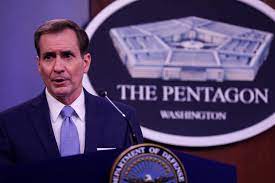By John Ubaldi, “Ubaldi Reports”
Congress must do its job and investigate, not only the challenges with the withdrawal, but the entire 20 years of mistakes, in a non-partisan and non-political way to insure Endless Wars never happen again.
We must admit the disastrous Afghanistan withdrawal was a complete debacle of monumental proportions, that could have been predicted by the previous 20 years of failure and one that may leave America less safe and empower terror organizations such as Al-Qaeda the perpetrators of the September 11th terror attack for years to come.
The way America left Afghanistan leaves the country exactly the way it was on September 10th 2001, with the Taliban back in power but in a stronger position armed with $80 billion in U.S. military equipment and Al-Qaeda along with every other terror organization able to operate inside the country.
The most important quest must first be who is being held responsible for the inability to properly do a Non-Combative Evacuation Operation, known as a NEO, which is the operational aspect of getting our citizens out of foreign countries when things go wrong failed.
Because if they obviously couldn’t plan for a NEO operation, knowing the previous president and current president were both adamant about leaving Afghanistan, then we will never get to the other equally important questions.
How did we get our national strategy so wrong during twenty years of conflict?
How did our military commanders get Afghanistan so wrong, with such a known history of how nations fail in Afghanistan?
How did we not know the enemy we were fighting?
Every military commander has likely read the philosophy of Sun Tzu articulated in the “Art of War,” “If you know the enemy and know yourself, you need not fear the result of a hundred battles. If you know yourself but not the enemy, for every victory gained you will also suffer a defeat. If you know neither the enemy nor yourself, you will succumb in every battle.”
Did the military brass accept the withdrawal of all U.S. troops from Afghanistan while Americans and our NATO allies still without a plan or objections?
Where does blame lay?
Chairman of the Joint Chief of Staff Mark Milley stated in May that “The Afghans are capable of standing up to the Taliban without the support of the U.S.-coalition.”
Contradicting comments made by Marine Corps Gen. Kenneth “Frank” McKenzie, commander of U.S. Central Command who testified before Congress in April, “I am concerned about the Afghan military’s ability to hold on after we leave.”
Even Secretary of Defense Lloyd Austin stated that Afghan military leaders are “committed” and capable of stopping Taliban gains.
Both of these leaders have to have known about the Afghanistan papers published since 2010 by the Special Inspector General for Afghan Reconstruction.
Did they or the majority of other senior military commanders object or raise serious concerns regarding any aspect of the Afghan war?
Which fundamentally resulted in leaving Afghanistan before all Americans were evacuated from the country?
Any senior military commanders must go before congressional and Senate leaders on the Armed Service Committee’s and say yes they had serious objections to this strategy considering the Committee has constitutional congressional mandated oversite?
Many senior military commanders will fall back on the premise that the President is the commander in chief and they are following his direction per the constitution. History is ripe with senior military commander’s questioning the direction of a president in conducting military operations or strategy.
Marine Corps Commandant General David Shoup strongly questioned early U.S. involvement in the Vietnam while serving on the Joint Chiefs of Staff. General Matthew Ridgway while serving as Army Chief of Staff often disagreed with President Eisenhower over military force structure .
In 1949, senior Naval admirals openly questioned polices of the Truman administration dubbed the “revolt of the admirals” during testimony before Congress over proposed force structure, and military strategy. This was done before Congress and its constitutional oversite role of the military.
We cannot allow bureaucrats, appointed leaders or senior military commanders testifying before Congress to talk in circles and rarely if ever give forthright testimony.
With this massive debacle there needs to be a comprehensive investigation on how military commanders and national security officials made serious strategic mistakes throughout the entire twenty years of U.S. involvement in Afghanistan.
One only needs to look at Israel, America’s staunchest ally on how that nation handled its disastrous war with Hezbollah in 2006 by instituting the “Winograd Commission” that looked into this engagement of self-criticism which even impressed its enemy.
This commission objectively encompassed the political, tactical, operative and logistic failures which all played during their conflict and its results better prepared the Israeli nation for future conflicts that arose.
America must conduct the same type of self-assessment


Leave A Comment
You must be logged in to post a comment.